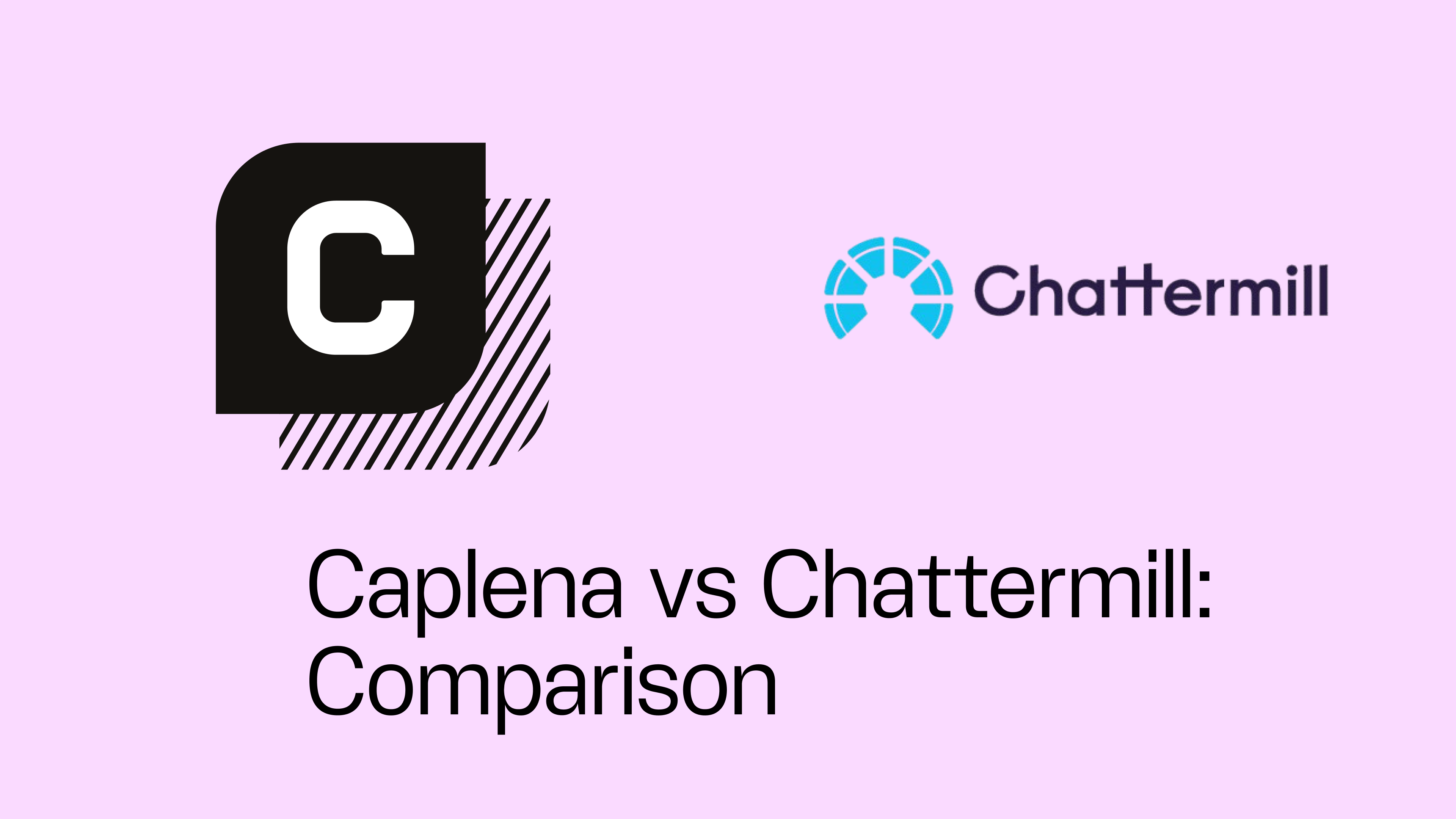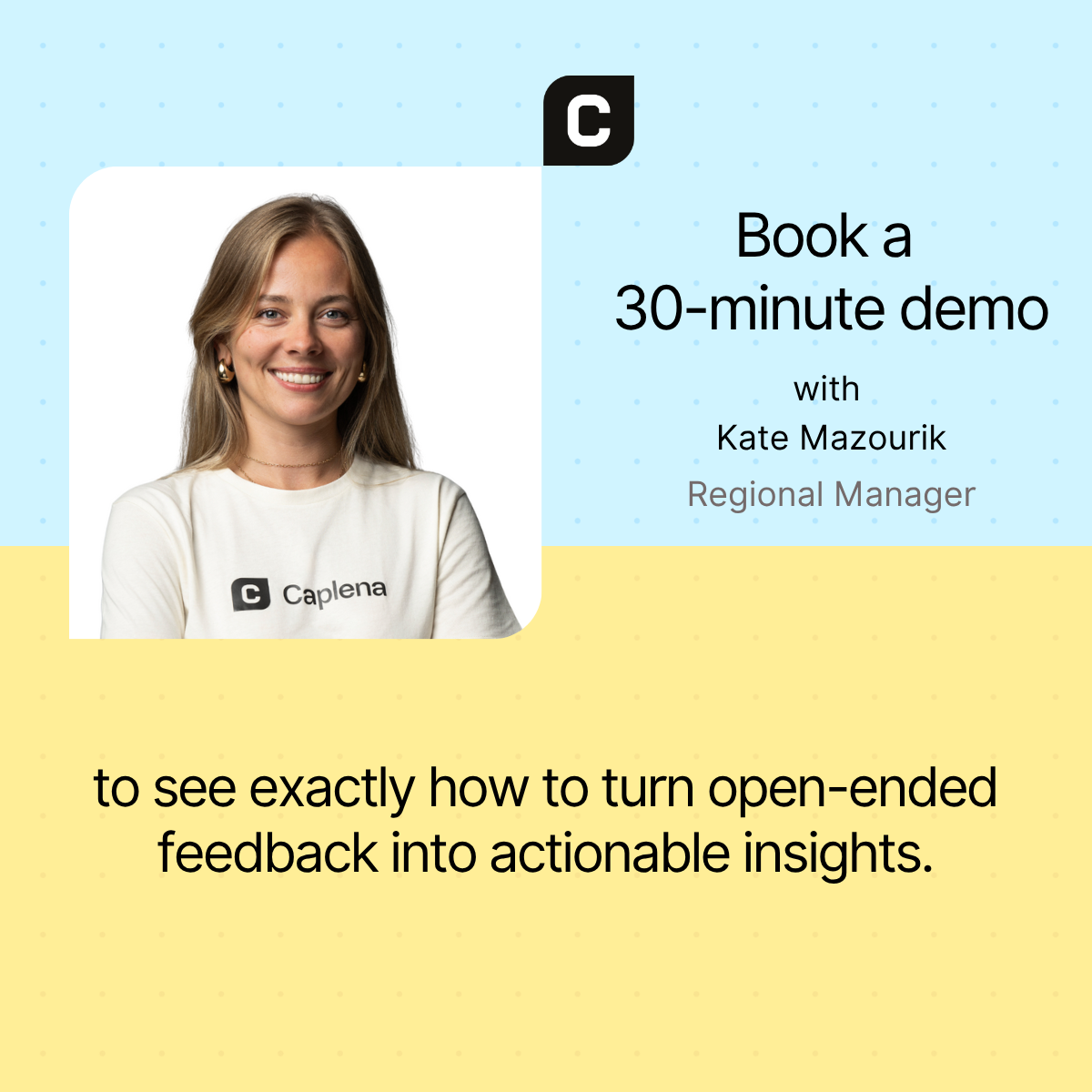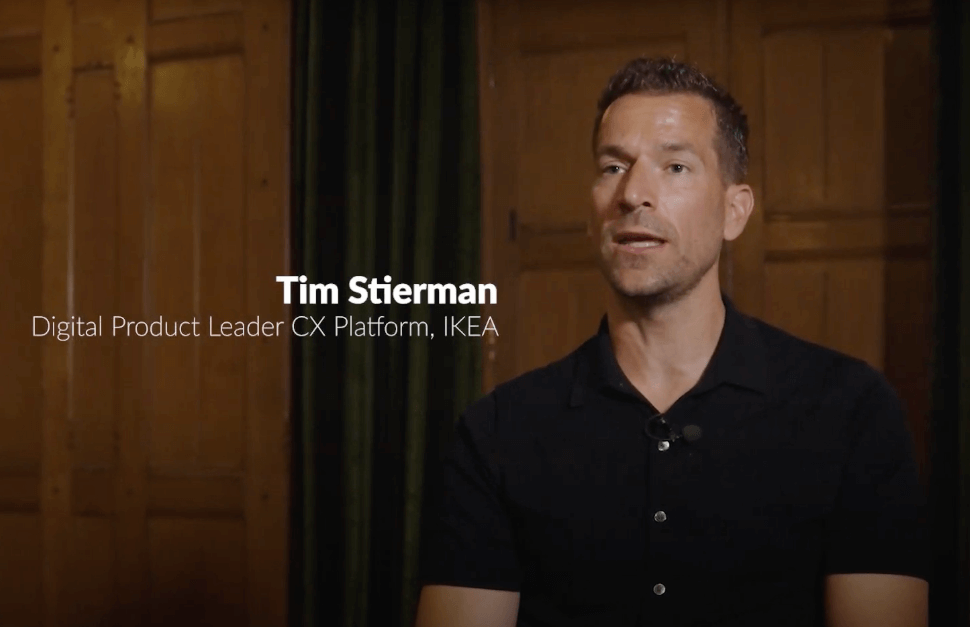Caplena vs. Chattermill: Which AI Feedback Analysis Platform Fits Your Team Best?

Prerana
Content Marketing Manager
Caplena vs Chattermill: An In-Depth Comparison
Both Caplena and Chattermill help organizations analyze open-ended feedback using AI.
The key difference lies in their focus: Chattermill specializes in continuous, automated CX monitoring, while Caplena combines that capability with powerful tools for ad-hoc studies, deep research, and data transparency.
If your team codes open-text data, requires trusted AI results, or operates under strict data standards, this guide highlights the differences that matter most.
Who Are These Tools Built For?
Caplena supports CX, insights, and research teams analyzing surveys, reviews, and unstrcutured feedback at scale. It’s designed for professionals who need accurate, transparent, and adaptable AI analysis across both continuous feedback programs and ad-hoc studies. It fits mid-sized and enterprise organizations, as well as agencies that prioritize data quality and analytical depth.
Chattermill serves CX and product teams seeking automated, real-time insights from continuous feedback sources such as support, reviews, and social channels. While well suited for CX functions focused on operational visibility, its black-box AI and preconfigured dashboards make it less customizable for research teams that need flexibility or deeper analytical exploration.
Features at a Glance
Feature |
Caplena |
Chattermill |
|---|---|---|
| AI Quality Control | ✅ Scoring & retraining | ⚠️ No measurable QA process |
| Topic Management | ✅ Edit, merge, prompt topics | ⚠️ Automatic only |
| Custom Codebooks | ✅ Import or build manually | ⚠️ Limited |
| File Import & Export | ✅ CSV, Excel, SPSS | ⚠️ CSV only |
| Data Management | ✅ Append, merge, replace columns | ⚠️ Limited |
| Data Enrichment | ✅ Smart Columns (LLM-powered) | ❌ Not available |
| Integrations | ✅ 15+, more on-demand, no limits | ✅ 40+ with tier-limits |
| API Access | ✅ REST API + Python library | ✅ REST API |
| Alerting | ✅ Customizable | ✅ Automated |
| Languages supported | ✅ 100+ natively | ⚠️ Translates to English |
| AI Assistant | ✅ Insight Chat (3rd Gen) | ⚠️ Ask Lyra (beta) |
| Reporting & Dashboards | ✅ Fully customizable | ⚠️ Prebuilt dashboards |
| BI Tool Connector | ✅ Yes | ❌ Not listed |
| Driver & Correlation Analysis | ✅ Supported | ✅ Supported |
Common Capabilities
Both platforms use AI to classify free-text feedback into topics and sentiment, reducing the need for manual coding. Neither platform collects survey data itself but both connect to existing feedback sources such as surveys, reviews, support tickets, and social media.
Both include:
AI-driven topic and sentiment analysis to uncover trends and drivers
Interactive dashboards for exploring insights and tracking changes
REST APIs for automating data flows and connecting with BI tools
Alerts and monitoring to identify emerging issues
Secure EU-based hosting with GDPR and SOC 2 Type II compliance
Multilingual support for global feedback analysis
Dedicated customer success and onboarding support, with fast implementation and responsive assistance praised by users
Key Differences for Insight Teams
Support for Ad-Hoc and Continuous Feedback
Caplena supports both continuous CX tracking and ad-hoc research, allowing teams to analyze surveys, reviews, and support data in one unified workspace. This flexibility helps organizations connect strategic insights from one-off studies with ongoing feedback programs.
Chattermill focuses on continuous, automated CX monitoring and does not offer native support for ad-hoc or project-based studies.
👉 Explore Caplena for ad-hoc studies & projects
AI Quality & Control
Caplena provides full transparency and analyst control while minimizing uncategorized comments. Each coded response carries a confidence score, and every user correction feeds back into the model, improving accuracy over time. Analysts can guide the AI through prompts, merge topics, or adjust sentiment classifications to maintain trust and precision.
Chattermill automates analysis across multiple channels but works largely as a black-box system. Confidence metrics, analyst retraining, or error diagnostics aren’t exposed in the interface.
👉 See how Caplena ensures AI quality and accuracy
Topic Management & Codebooks
Caplena enables complete flexibility in managing topics. Users can import or reuse codebooks, merge or split topics, and use LLM-powered prompts to refine or uncover new themes. Built-in significance testing supports validation across segments or time periods, ensuring reliable and consistent coding across studies.
Chattermill auto-generates topics and allows basic theme editing, but lacks a robust framework for controlled topic management or statistical validation.
👉 Explore how Caplena handles AI topic modeling
Advanced Topic Discovery
Caplena continuously identifies emerging themes while giving analysts full control over interpretation. Users can prompt the AI to explore unclassified feedback, validate patterns, and trigger alerts for new topics as they appear. This balance of automation and analyst control helps maintain both speed and accuracy as feedback evolves.
Chattermill focuses on automation through “Observations” and “Highlights,” which summarize spikes or shifts in feedback for quick overviews. While fast and convenient, these features are less transparent and offer limited analyst control.
👉 See how Caplena's topic discovery works
Agentic Insights
"Der Kaplena Insight-Agent liefert valide Daten in einer Tiefe, die viele überrascht – die Visualisierungen im Insight-Agent sind für uns ein echter Game Changer.
Der Kaplena Insight-Agent liefert valide Daten in einer Tiefe, die viele überrascht – die Visualisierungen im Insight-Agent sind für uns ein echter Game Changer.
Niklas Melchior
Customer Insights Expert
Caplena's Insight Chat is a mature, third-generation AI research assistant capable of handling complex analytical questions, combining qualitative and quantitative reasoning, generating visualizations, and performing data-backed comparisons. You can ask:
“What drives low NPS among business customers in Germany?”
and receive data-backed answers with auto-generated charts and summaries.
Chattermill’s Ask Lyra is an emerging conversational interface currently in beta. It supports straightforward natural-language queries but limited analytical depth.
👉 Learn how Insight Chat accelerates analysis
Data Enrichment & Flexibility
Caplena’s Smart Columns feature helps clean and enrich feedback data automatically. Analysts can extract entities, map codes, create formula fields, or merge columns for deeper filtering and analysis, all powered by LLMs.
Chattermill provides structured feedback analysis but doesn’t mention comparable enrichment or transformation capabilities.
👉 Discover how Smart Columns enhance your data
Reporting & Analytical Depth
Caplena provides a flexible reporting suite where users can build custom reports combining qualitative and quantitative data. These reports include elements like topic breakdowns, correlations, sentiment trends, and driver analysis, with options to filter, test significance, and export to BI tools such as Tableau or Power BI.
Chattermill’s new reporting interface focuses on speed and collaboration through predefined templates and shared dashboards. It’s well suited for quick CX summaries but offers less customization and analytical depth.
👉 See how Caplena reporting brings insights to life
Integrations & API Extensibility
Both platforms connect to major feedback and CX tools.
Caplena provides an open REST API and a Python client library, enabling flexible automation without limits on connector usage per plan.
Chattermill offers 40+ prebuilt integrations, including support and review platforms, but caps the number of active connectors depending on subscription tier.
👉 View all Caplena integrations
Pricing
Caplena uses annual feedback quotas, letting teams flexibly allocate usage throughout the year.
Chattermill’s monthly credit plans (10 000 items on Pro, 30 000 on Team) can constrain scalability if feedback volumes fluctuate month-to-month.
👉 See Caplena's pricing overview
Conclusion
Both Caplena and Chattermill deliver powerful AI-driven text analytics for understanding customer feedback.
Chattermill excels at continuous, automated CX monitoring, making it ideal for teams that want quick summaries across large feedback streams with minimal setup.
Caplena, on the other hand, is built for insight-driven organizations that expect more than automation. It focuses on accuracy, transparency, and analytical depth, with features like Smart Columns, AI summaries, Insight Chat, and significance testing. Together, these give teams the flexibility and confidence to uncover the “why” behind customer sentiment.
Both platforms help companies listen to their customers, but Caplena goes further by providing the precision and control that modern CX and research teams rely on.
Curious to see how other companies drive insights-led growth with Caplena? Check out our Customers success stories below.



